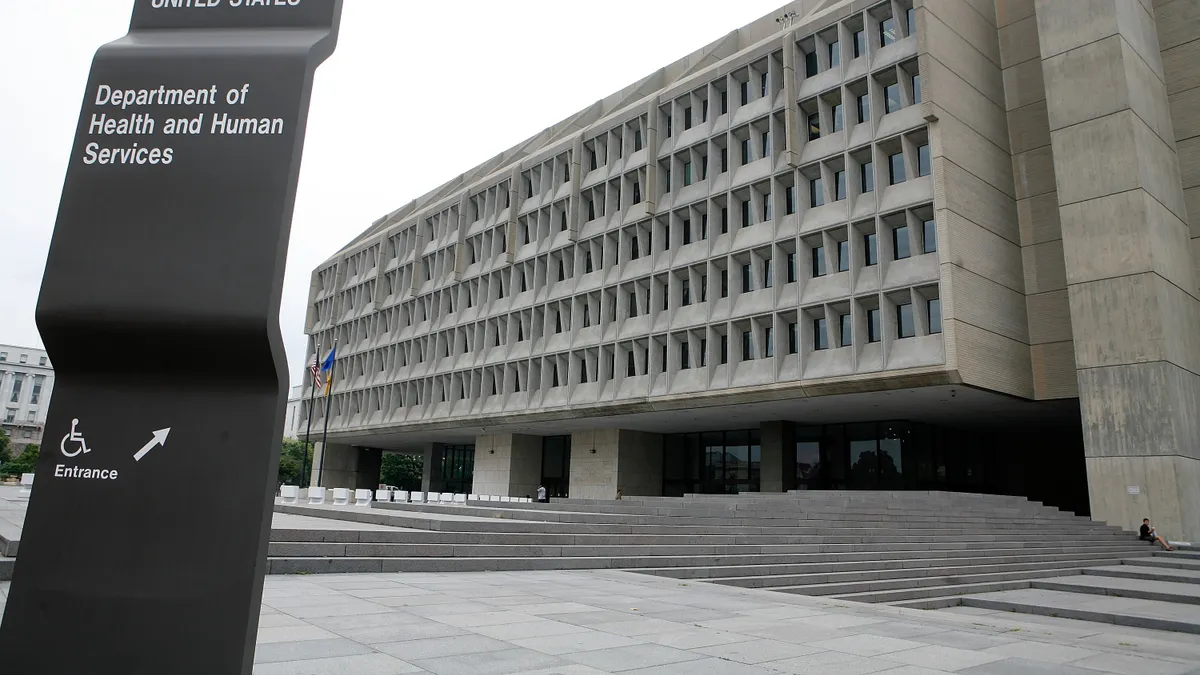Dive Brief:
- CMS on Sunday said it would no longer expedite Medicare payments to doctors and be more stringent about accelerating the payments to hospitals as the Congressional relief aimed at providers reaches $175 billion.
- The agency is not accepting any new applications for the loans from Part B suppliers, including doctors, non-physician practitioners and durable medical equipment suppliers. CMS will continue to process pending and new requests from Part A providers, including hospitals, but be stricter with application approvals.
- CMS expanded the Accelerated and Advance Payment Programs in late March as the pandemic continued to gain strength in the U.S. Since then, the agency has approved over 21,000 applications making up $59.6 billion in accelerated payments to Part A providers and almost 24,000 applications making up $40.4 billion in payments for Part B suppliers.
Dive Insight:
As the infected rate creeps toward 1 million in the U.S., the coronavirus pandemic has set off an unprecedented financial crisis for providers. Hospitals and doctor's offices are facing bankruptcy as they hit pause on non-essential yet lucrative elective surgeries. Hospitals are seeing their margins plummet due to volume and revenue declines paired with rising expenses, while one-fifth of primary care practices say they may be forced to close within the next month.
The Accelerated and Advance Payment Programs are used to get providers emergency funds quickly based on their historical payments when they're experiencing dramatic cash flow issues and disrupted claims, such as during a public health emergency or natural disaster.
But CMS is now dialing it back, citing the $175 billion tranche of funding Congress has appropriated to help providers fight the virus. The pause comes as states like Georgia and Colorado inch toward reopening businesses against the advice of public health experts, who warn restarting the economy too early is likely to cause a second flare-up of the virus.
Health policy experts and provider groups called the move premature as the financial concerns plaguing doctor's offices and hospitals are unlikely to go away anytime soon. It "raises so many questions," Shawn Martin, incoming CEO at the American Academy of Family Physicians, wrote on Twitter. "The AAP program has been a lifeline for independent primary care physicians. Why cut them off so abruptly?"
The $2.2 trillion Coronavirus Aid, Relief, and Economic Security stimulus package passed by Congress in March benchmarked $100 billion in funds for hospitals. On Friday, President Donald Trump signed legislation with a second round of emergency funding, called the Paycheck Protection Program and Health Care Enhancement Act, that allocates another $75 billion for providers — roughly three-quarters of what major provider trade associations requested.
An initial $30 billion from the fund was distributed between April 10 and April 17 based on Medicare fee-for-service revenue, sparking criticism that put facilities with a smaller proportion of Medicare business, such as children's and disproportionate share hospitals, at a disadvantage. HHS on Friday began releasing an additional $20 billion in CARES payments to providers based on their 2018 net patient revenue, with more funding to roll out "soon," the agency said, including $10 billion for hard-hit areas like New York.
The funding is in the form of grants, so doesn't need to be repaid. By comparison, the expedited Medicare payments are loans, with the majority of providers and suppliers expected to pay CMS back within the year. In another bid to ease financial burden on providers, lawmakers included a 20% bump in Medicare payments for treating COVID-19 in the CARES Act.
Most providers can request up to 100% of their Medicare payment amount for a three month period in the Accelerated and Advance Payment Programs. Inpatient acute care hospitals, certain cancer facilities and children's hospitals can request up to 100% of the amount for half a year, while critical access hospitals can request up to 125% of the payment for half a year.
CMS last made the advance payments more widely available to providers during Hurricanes Harvey and Irma in 2017, but they're relatively rare under normal circumstances. The agency processed only 115 accelerated or advanced payment requests over the past five years.












